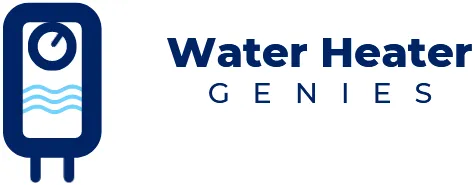Solar Water Heater Installation Malden: Your Ultimate Guide
Did you know that switching to a solar water heater could save you up to 80% on your water heating bills? That's right - you could be slashing your energy costs while reducing your carbon footprint right here in Malden, Massachusetts. As a homeowner in Malden, you're probably always on the lookout for ways to cut down on your utility bills, especially during those long, cold New England winters. Well, solar water heaters might just be the solution you've been searching for.
In this comprehensive guide, we'll explore everything you need to know about solar water heater installation and repair in Malden. We'll cover how these systems efficiently provide hot water even during Malden's chilliest months, break down the upfront costs and available incentives, and show you the potential long-term savings you could be looking at by installing a solar water heater in your Malden home. Plus, we'll explore some smart ways to integrate a solar water heater with your existing plumbing and home automation systems for maximum efficiency and convenience.
Whether you're a tech-savvy homeowner looking to modernize your home systems, or you're simply tired of those sky-high energy bills, this guide is for you. So, let's get started and see how solar water heaters can transform your Malden home into an energy-efficient powerhouse!

The Importance of Energy Efficiency
Let's talk about your current water heater for a second. You know, that big tank sitting in your basement that you hardly ever think about? Well, it's kind of like an old-fashioned cash register that's constantly open, letting your hard-earned money slip away day and night. On the other hand, a solar water heater? That's more like a modern, silent payment system -
efficient, quiet, and keeping your cash where it belongs: in your pocket.
Traditional water heaters are energy hogs, plain and simple. They're always on, always heating, whether you need hot water or not. In a place like Malden, where winters can be brutal and energy costs are no joke, that's a recipe for some seriously painful utility bills.
But here's where solar water heaters come in as a game-changer. They use the power of the sun - yes, even in Malden's climate - to heat your water. This means they're drawing on a free, renewable energy source instead of constantly pulling electricity from the grid. The result? A
major drop in your energy consumption and, by extension, your monthly bills.
Now, I know what you're thinking. "But what about those cloudy days? Or our long, dark winters?" Don't worry, we'll get into all that. The point is, solar water heaters offer a cost-effective solution that can make a real difference in your home's energy efficiency. And in a world where every penny counts and we're all trying to do our part for the environment, that's something worth considering.


How Solar Water Heaters Work In Malden's Climate
Alright, let's break down how these solar water heaters actually work, especially in a place like Malden where we're not exactly known for our year-round sunshine.
First off, there are two main types of solar water heaters: active and passive systems. Active systems use pumps and controls to move water or heat-transfer fluids through the system, while passive systems rely on natural convection.
In Malden, you're most likely going to be looking at an active system. These are better suited to colder climates because they have features that protect against freezing.
Here's how it works:
Solar collectors, usually mounted on your roof, absorb heat from the sun. In an active system, a pump circulates a heat-transfer fluid (often a mix of water and antifreeze) through these collectors and into a storage tank. This fluid, now heated by the sun, then transfers its heat to the water in the tank. Voila! You've got hot water, courtesy of the sun.
Now, I know you're wondering about our New England weather.
Truth is, these systems can still collect heat on cloudy days, just not as much. And yes, they even work in winter. The collectors are designed to absorb heat even when it's cold outside.
But let's be real - there will be times when the solar system alone can't meet all your hot water needs. That's why most systems
installed in places like Malden come with a backup. This could be a traditional electric or gas water heater that kicks in when needed, ensuring you always have hot water, no matter what Mother Nature throws our way.
The beauty of this setup is that you're still saving energy most of the time, only using the backup when absolutely necessary. It's like
having the best of both worlds - the energy efficiency of solar with the reliability of a traditional system.
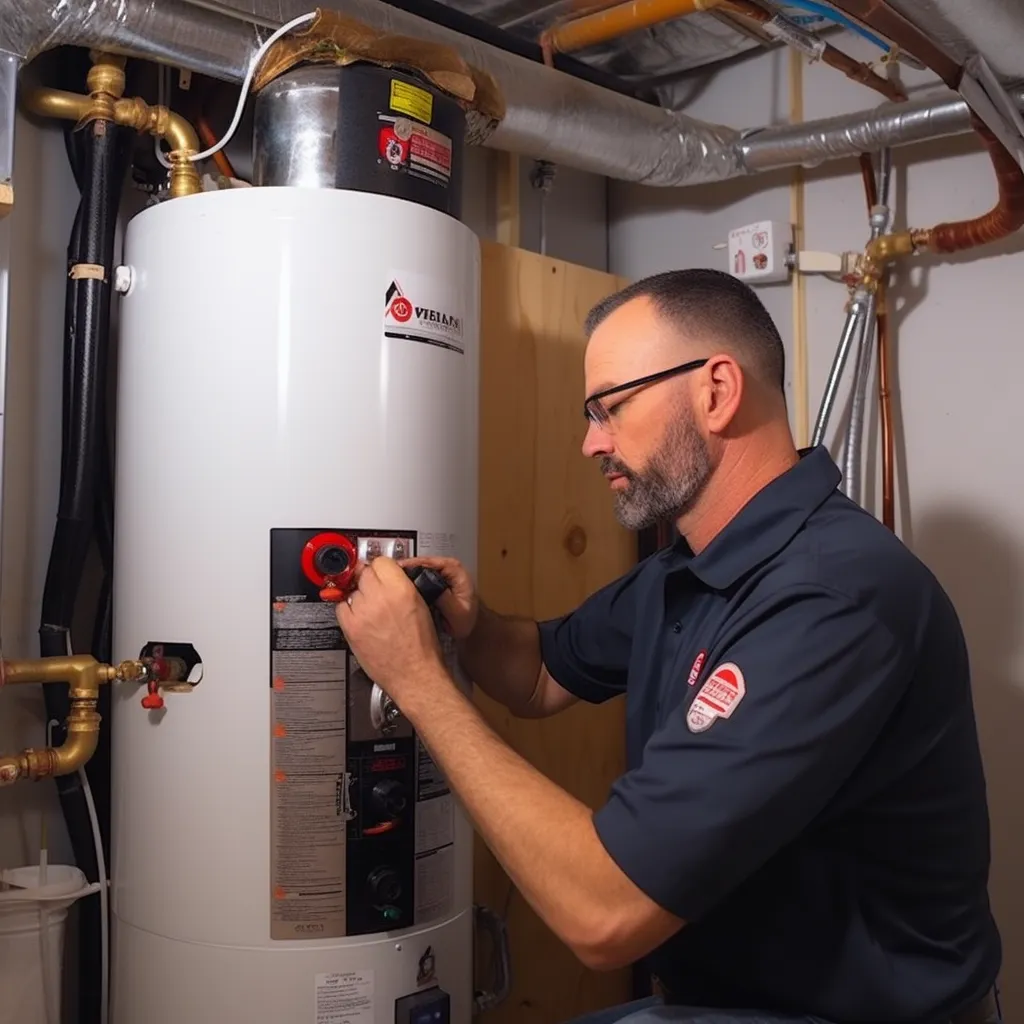
What Are The Benefits Of Solar Water Heaters?
Now that we've covered how these systems work, let's talk
about why you might want one in your Malden home. There's a bunch of benefits, and they go way beyond just saving on your energy bills.
First up, let's talk money
The savings on your utility bills can be pretty significant. We're talking potentially cutting your water heating costs by 50-80%. In a place like Malden where energy ain't cheap, that's a big deal. It's like getting a raise without having to ask your boss.
But it's not just about the money in your pocket
By using solar energy, you're also doing your part for the environment. You're reducing your carbon footprint big time. It's like planting a bunch of trees in your backyard, except you don't have to do any gardening.
Here's something else to consider
Installing a solar water heater can increase your home's value. More and more buyers are looking for energy-efficient homes, so it's a smart investment for the future. It's like giving your house a little gold star that says "eco-friendly."
Another great thing about solar water heaters?
They're low maintenance. Once they're installed, you don't have to do much. No moving parts, no fuel to add - they just sit there, soaking up the sun and heating your water. Compare that to traditional water heaters that need regular check-ups and replacements.
Speaking of replacements
Solar water heaters typically last longer than traditional ones. We're talking 20 years or more for a solar system, compared to 10-15 for a conventional water heater. That means less hassle and fewer replacement costs down the line.
So there you have it - lower bills, helping the environment, boosting your home value, less maintenance, and a longer-lasting system. It's a pretty sweet deal, right?

What Are The Costs and Savings of Installing a Solar Water Heater?
Alright, let's talk numbers. I won’t sugarcoat it - installing a solar water heater does involve some upfront costs. In Malden,
you're looking at anywhere from $8,000 to $10,000 for a typical system. I know, that's not chump change. But before you run for the hills, hear me out.
First off, there are a ton of incentives available that can help offset these costs. At the federal level, you can get a tax credit for 30% of the cost of your system. That's a big chunk of change right there. Then there's the Massachusetts Clean Energy Center, which offers rebates for solar
hot water systems. And don't forget about local incentives - Malden's got some programs that can help too.
Now, let's talk long-term savings. Remember how we said you could cut your water heating costs by up to 80%? Let's do some quick math. Say your current water heating bill is $50 a month. With a solar water heater, that could drop to just $10. That's $480 saved per year. Over the 20-year lifespan of the system, you're looking at savings of $9,600. And that's not even accounting for rising energy costs.
When you factor in the incentives and the long-term savings, the return on investment starts looking pretty good. Most homeowners in Malden see their systems pay for themselves in 5-10 years. After that, it's all savings.
Compare that to a traditional water heater. Sure, the upfront cost is lower, but you're paying higher energy bills every month, and you'll likely need to replace it at least once before a solar system would wear out.
I get it, though. That initial cost can be a tough pill to swallow. But think of it this way - it's not just an expense, it's an investment. An investment in your home, in lower bills, and in a cleaner environment. And like any good investment, it pays off over time.
Can Solar Water Heaters Be Integrated With Existing Home Systems In Malden
Now, you might be wondering, "How's this solar water heater gonna fit in with my current setup?" Good news - these systems are designed to play nice with your existing plumbing. In fact, most of the time, you won't even notice a difference in how you use hot water. It's kind of like
upgrading your phone - new tech, same basic function.
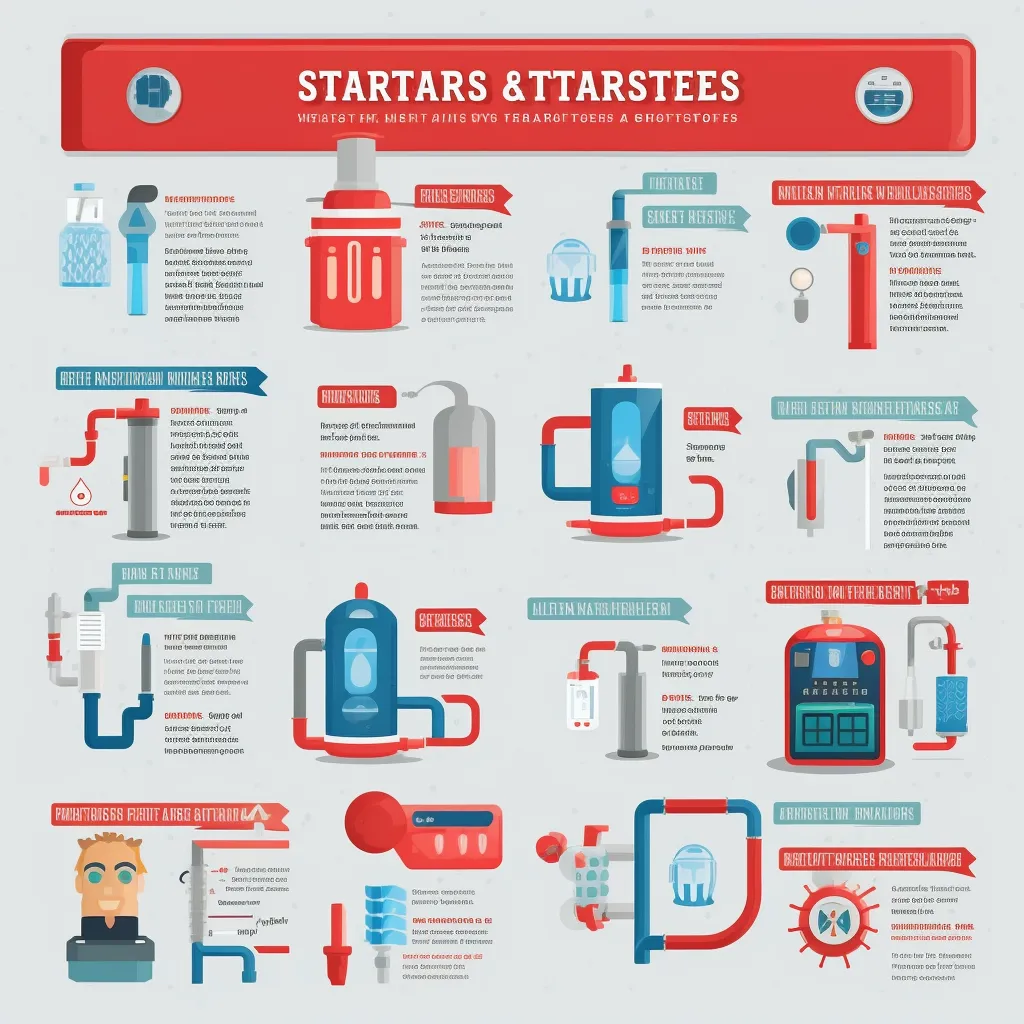
First off, let's talk plumbing compatibility. Solar water heaters can usually be integrated with your existing pipes without major overhauls. The solar storage tank typically gets installed right next to your current water heater, which can act as a backup when needed. It's like having a tag-team partner for your old water heater.
But here's where it gets really cool - smart home integration. Yeah, you heard that right. You can get solar water heaters that
hook up to your home automation system. Imagine being able to monitor your hot water usage from your phone, or setting schedules for when you need hot water most. It's like having a personal assistant for your water heating.These smart systems can do all sorts of nifty tricks. They can learn your hot water usage patterns and optimize the system accordingly. Some can even use weather forecasts to predict when they'll need to rely more on backup heating. It's pretty sci-fi stuff, if you ask me.
And it's not just about convenience. These smart features can help you squeeze even more efficiency out of your system. You can see exactly how much energy you're saving, and tweak things to save even more. It's like having a game where the goal is to lower your energy bill - and who doesn't like winning?
But solar water heaters aren't the only energy-efficient upgrade you can make. They work great in combo with other eco-friendly home improvements. Got solar panels? Perfect. Thinking about a heat pump? They can work together beautifully. It's like assembling your own personal energy-saving Avengers team.
The best part? All of these systems can often be controlled from a single app on your phone. So you're not just saving energy, you're simplifying your life too.
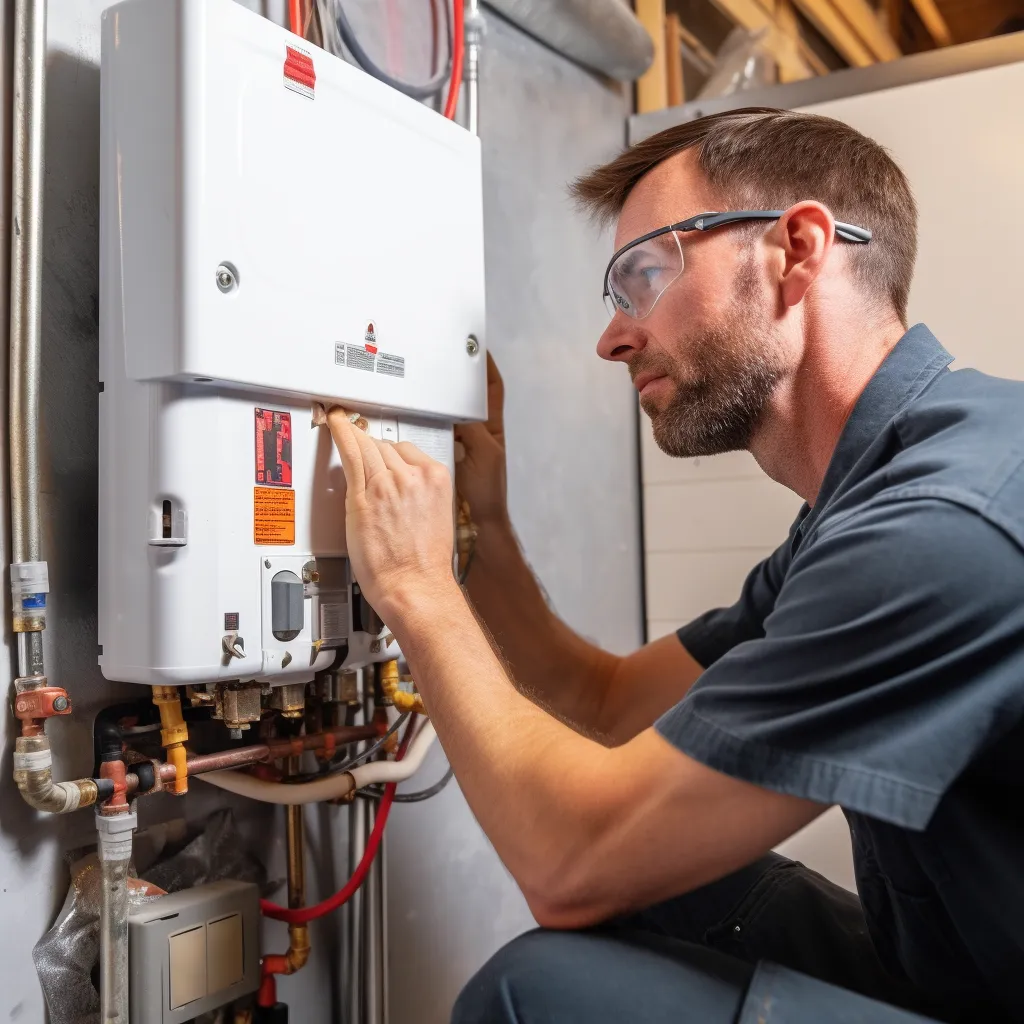
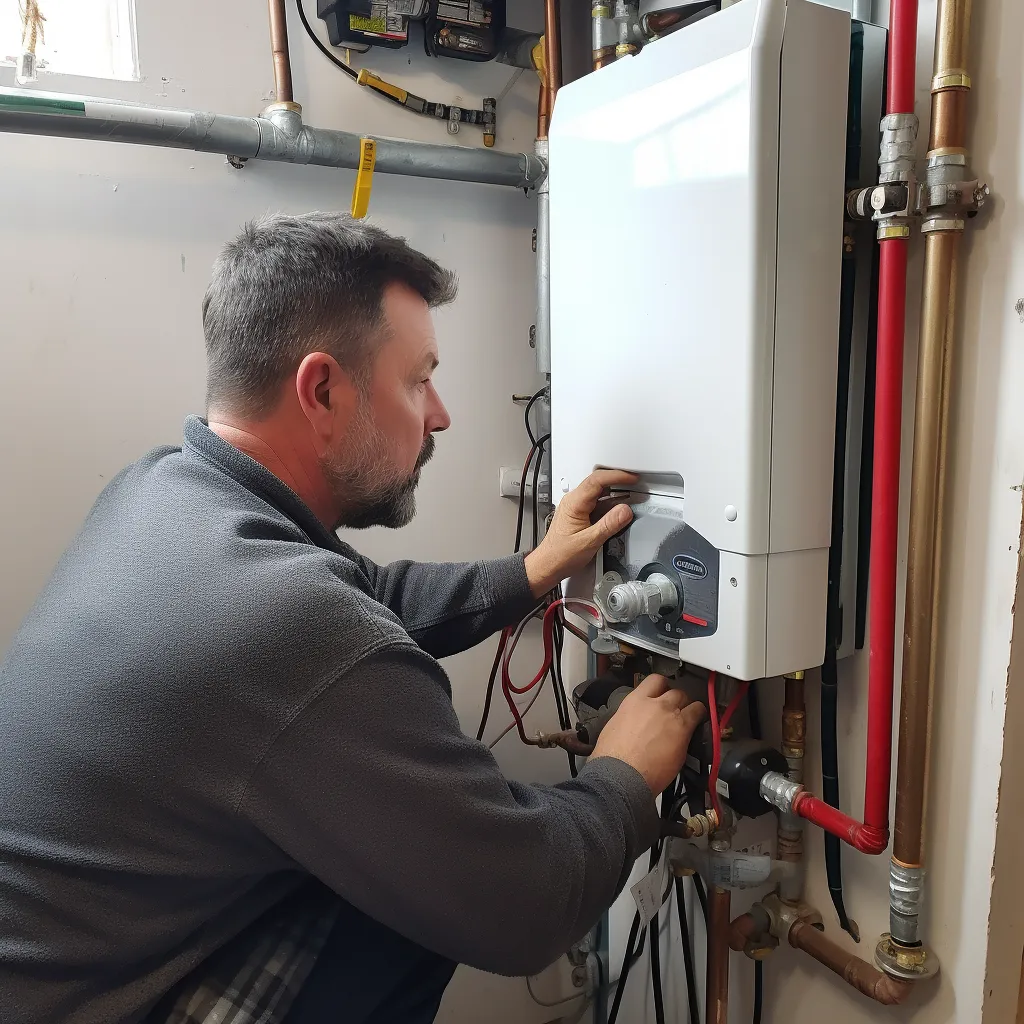
Installation Process and Considerations
Alright, so you're sold on the idea of a solar water heater. What's next? Let's walk through the installation process so you know exactly what to expect.
1. First things first - we need to do a site assessment. This is where a pro comes to your house and checks things out. They'll look at your
roof to make sure it can support the solar collectors, check out your existing water heater setup, and figure out the best place for the new tank.
2. They'll also size up your household's hot water needs to make sure you get a system that's just right - not too big, not too small.
3. Now, here in Malden, we've got some rules about this stuff. You're gonna need permits before any work can start. Don't sweat it though - a good installer will handle all that paperwork for you. They know the local codes inside and out, so you don't have to become an expert in Malden building regulations overnight.
4. So how long does all this take? Well, once you've decided to go ahead, most installations can be done in 2-3 days. Day one is usually for prepping the site and installing the storage tank. Day two is for putting the collectors on the roof and hooking everything up. If there's a day three, it's usually just for finishing touches and testing.
5. Now, choosing the right installer is key. You want someone who knows their stuff, especially when it comes to installing solar water
heaters in Malden's climate. Look for certifications from organizations like the North American Board of Certified Energy Practitioners (NABCEP). And don't be shy about asking for references - a good installer will be happy to show off their past work.
Remember, this is a long-term investment in your home. It's
worth taking the time to find an installer who'll do the job right.
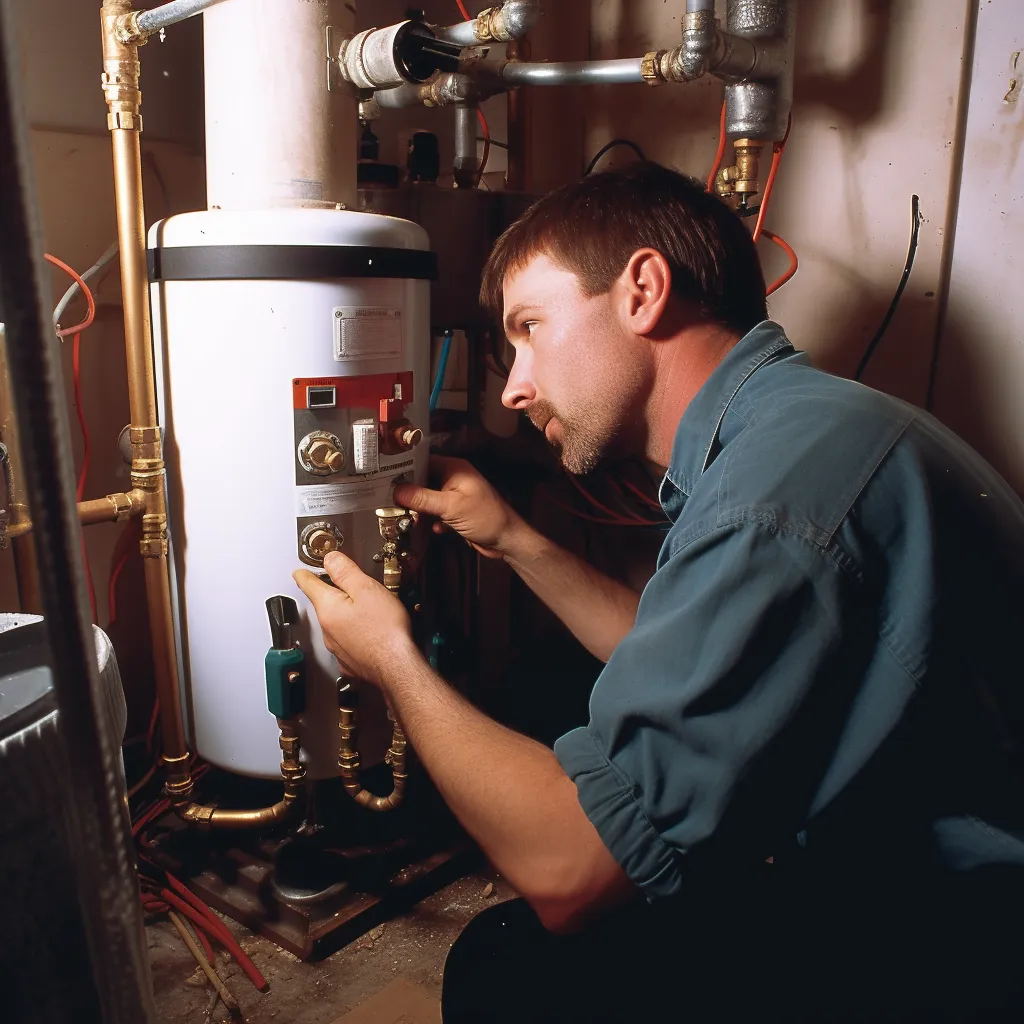
Maintenance And Troubleshooting
Alright, so you've got your shiny new solar water heater installed. Now what? Well, the good news is, these systems are pretty
low-maintenance. But like any piece of equipment, a little TLC goes a long way.
1. Let's start with routine maintenance. Most of the time, you don't have to do much. Once a year, give the solar collectors a quick look-see. Check for any dirt, leaves, or snow build-up and clear it off if you need to. It's kind of like cleaning your gutters, but way easier.
2. Every 3-5 years, you might need to replace the heat-transfer fluid. This is usually a job for a pro, but it's not a big deal. Think of it like getting an oil change for your car.
3. Now, what about when things go wrong? Most common issues are pretty simple. If you're not getting enough hot water, it could be something as basic as a cloudy day. But if it persists, you might have a pump issue or a leak in the system.
4. Sometimes, you might see a drop in efficiency. This could be due to scaling in the collectors, especially if you've got hard water. A good flush of the system usually takes care of it.
5. If your backup heater is kicking in more than usual, it could mean your solar collectors aren't working at full capacity. This might be
because of shading from tree growth, or maybe the collectors need cleaning.
6. For most of these issues, a quick call to your installer can sort things out. They can usually walk you through some simple troubleshooting steps over the phone.
But here's the thing - you don't want to mess around too much with the system yourself. If you're seeing leaks, weird noises, or if your energy bills suddenly spike, it's time to call in the pros. Better safe than sorry, right?
The good news is, serious issues are pretty rare with solar water heaters. They're simple systems without a lot of moving parts, which
means there's less that can go wrong.
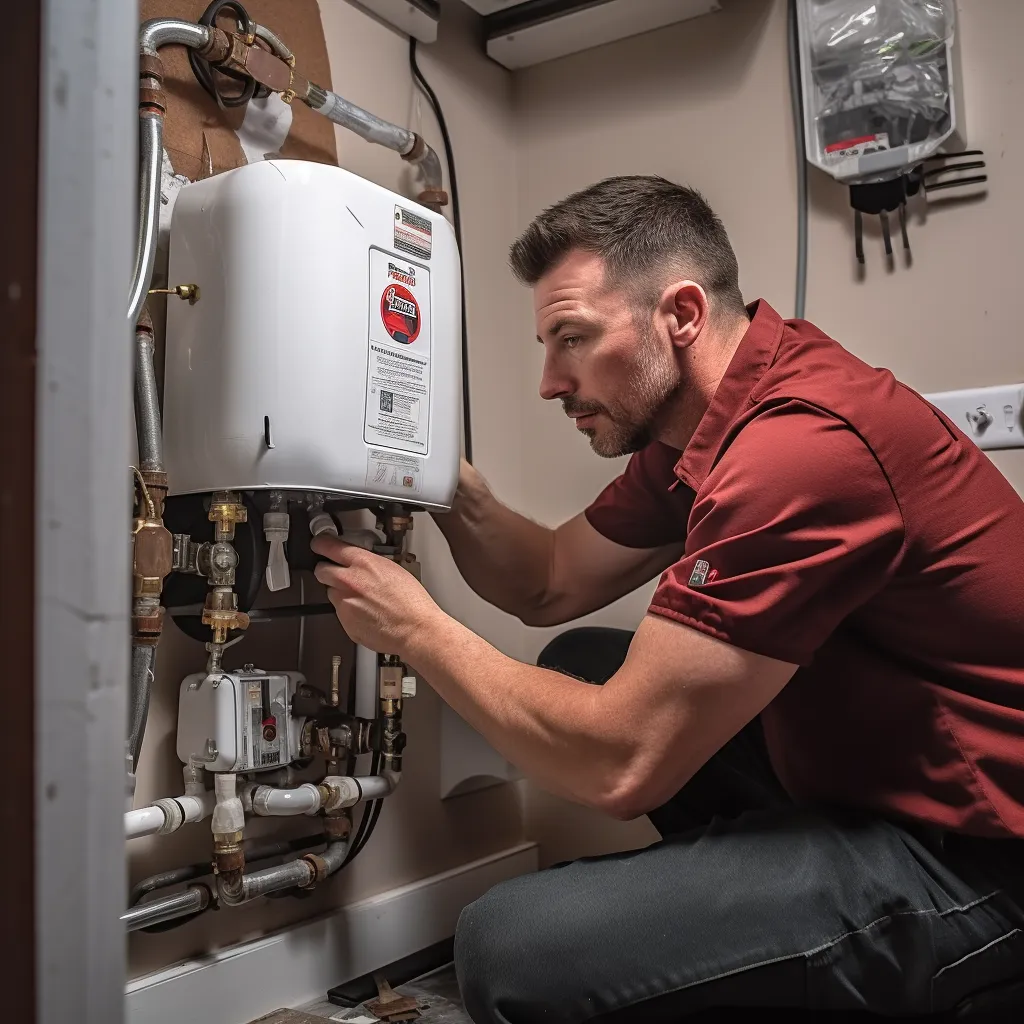
How Does Water Quality Affect A Solar Water Heater?
I know a lot of you Malden folks are concerned about water quality, especially if you're living in an older home. You might be wondering, "How does a solar water heater fit into all this?" Well, let me break it down for you.
First off, let's address the elephant in the room - lead pipes. If you've got an older home in Malden, there's a chance you might have some lead in your plumbing. It's a valid concern, and it's something we take seriously.
Here's the good news - a solar water heater doesn't make the lead situation any worse. In fact, it might even help a bit. How? Well, solar water heaters typically store water at a higher temperature than traditional heaters. This can actually reduce the amount of lead that leaches into your water.
But let's be clear - a solar water heater isn't a solution for lead pipes. If you're worried about lead, you need to get your water tested and consider replacing those old pipes. It's a separate issue from your water heating system.
That said, solar water heaters can contribute to overall better water quality in other ways. For one, they reduce the need for energy production at power plants, which can lead to cleaner air and water for everyone. It's a small step, but every little bit helps, right?
Also, because solar water heaters don't burn fuel to heat water, they don't produce any combustion byproducts. That means no carbon monoxide or other nasty stuff that could potentially contaminate your water supply.
Some folks worry that storing water in a solar tank might lead to bacteria growth. But modern solar water heaters are designed to heat water to temperatures that kill harmful bacteria. Plus, the storage tanks are well-insulated and sealed, keeping your water clean and safe.
If you're really concerned about water quality, you might want to consider a whole-house water filtration system alongside your solar water heater. They work great together, giving you clean, hot water that's energy-efficient to boot.
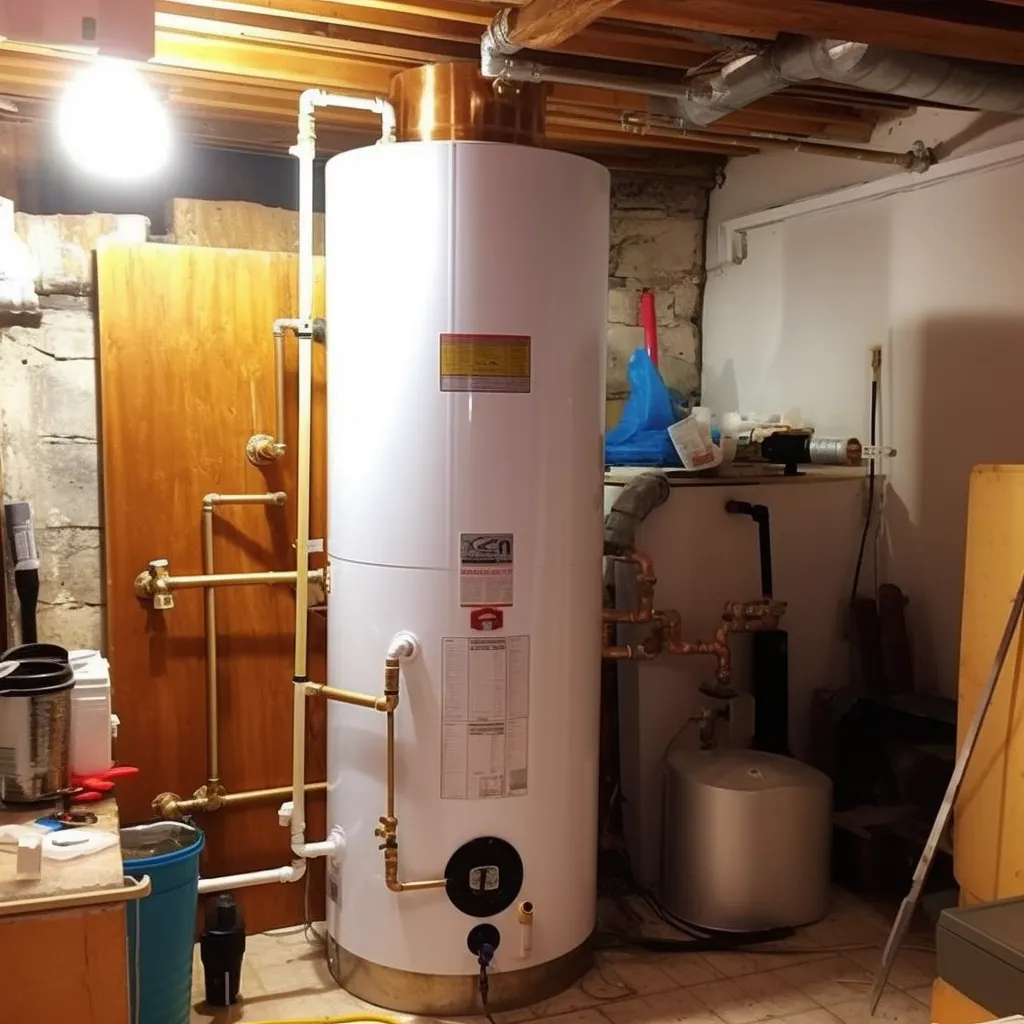
What Are Some Financing Options?
I get it - that upfront cost for a solar water heater can
look pretty scary. But don't let that number scare you off just yet. There are plenty of ways to make this investment more manageable.
1. First up, let's talk financing plans. A lot of installers offer their own financing options. This could mean spreading the cost over a few years with monthly payments. It's kinda like buying a car - you get to enjoy the benefits right away while paying it off over time.
2. Some local banks and credit unions in Malden also offer special loans for energy-efficient home improvements. These often come with lower interest rates than your typical home improvement loan. It's worth shopping around to see what's available.
3. Now, here's a cool option you might not know about: Property Assessed Clean Energy (PACE) financing. It's a program that lets you
finance your solar water heater through an assessment on your property taxes. The loan is tied to your property, not you personally, which can be a big plus.
4. There's also the Mass Save HEAT Loan Program. This offers zero-interest loans for qualified energy-efficient improvements, including
solar hot water systems. Yeah, you heard that right - zero interest. It's like borrowing money from your nicest friend who doesn't care when you pay them back.
5. And don't forget about those rebates and tax credits we talked about earlier. You can often use these to reduce the amount you need to finance, making your monthly payments even lower.
6. Some folks even choose to use a home equity line of credit (HELOC) to fund their solar water heater. If you've built up equity in your home, this can be a low-interest way to finance the project.
The point is, there are options out there. You don't have to have a big chunk of cash sitting around to get started with solar water
heating. With the right financing plan, your monthly loan payment plus your new, lower energy bill might even be less than what you're paying for energy now. It's like the system is paying for itself.
Remember, a solar water heater is an investment in yourhome. It's not just an expense - it's something that'll pay you back over time
through energy savings and increased home value.
Next Steps: Get Your Solar Water Heater Journey Started
So, we've covered a lot of ground here. From how solar water heaters work in Malden's climate to the benefits they bring, the costs involved, and even how to finance them. But now you might be wondering, "What's next?"
Well, if you're thinking a solar water heater might be right for your Malden home, here's what you can do:
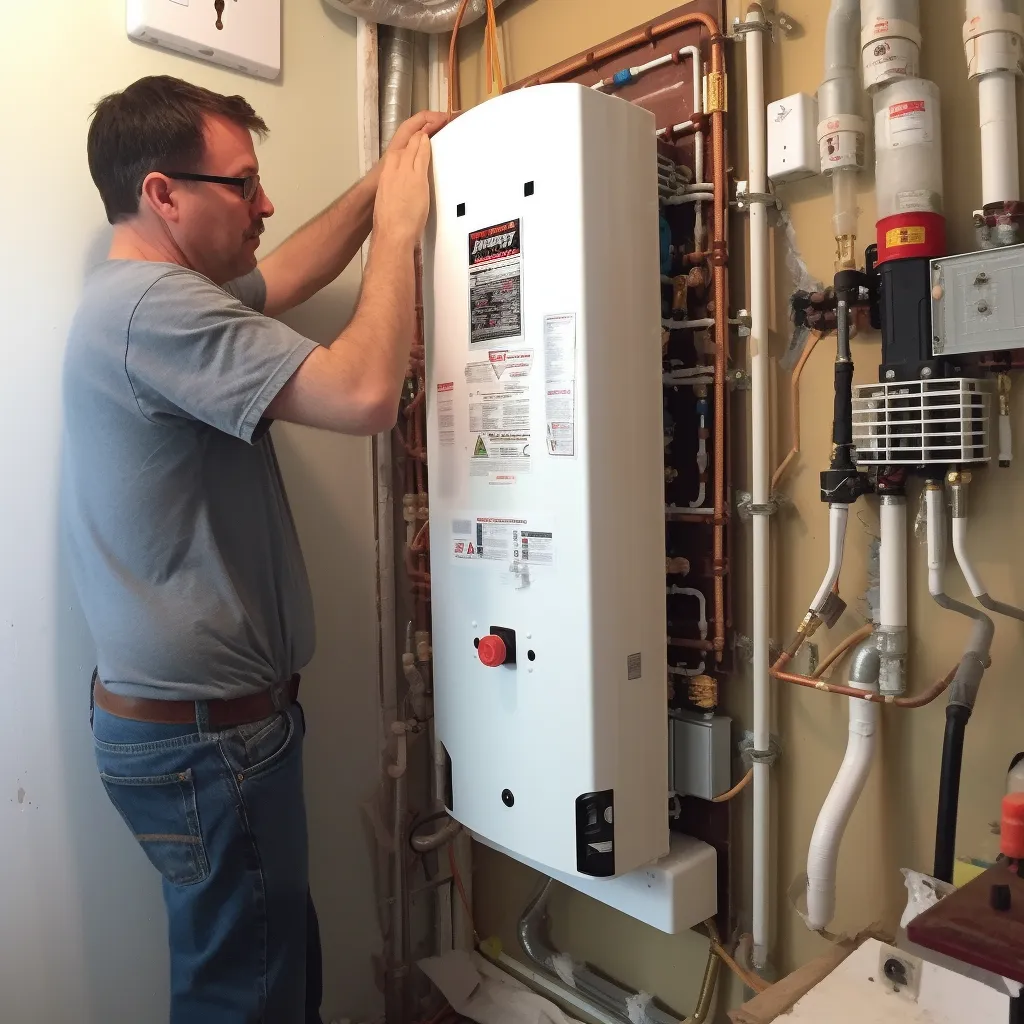
Schedule a free consultation: Give us a call or shoot us an email. We'll set up a time to come check out your home and chat about your specific needs. No pressure, just info.
Get a customized plan: After we've seen your place, we'll put together a plan tailored just for you. We'll break down the costs, the savings, and everything in between.
Expert installation: If you decide to go ahead, our team of pros will handle the installation from start to finish. We'll take care of permits, equipment, everything. You just sit back and relax.
Ongoing support: Once your system's up and running, we're still here for you. Any questions, concerns, or issues down the line, just give us a shout.
Remember, every home is unique. What works for your neighbor
might not be the best fit for you. That's why we always start with a
personalized consultation.
Ready to take the first step? Here's how to reach us:
Phone: (781) 679-1733
Website: www.waterheatermalden.com
Email: marcus@waterheatermalden.com
Don't let another high energy bill come in before you make a change. Give us a call today and let's see how we can start saving you money while helping the environment.
Solar water heater installation and repair in Malden doesn't need to be complicated. With the right team on your side, it can be a smooth, stress-free process that pays off for years to come.
So what are you waiting for? Let's get started on your solar water heating journey today!
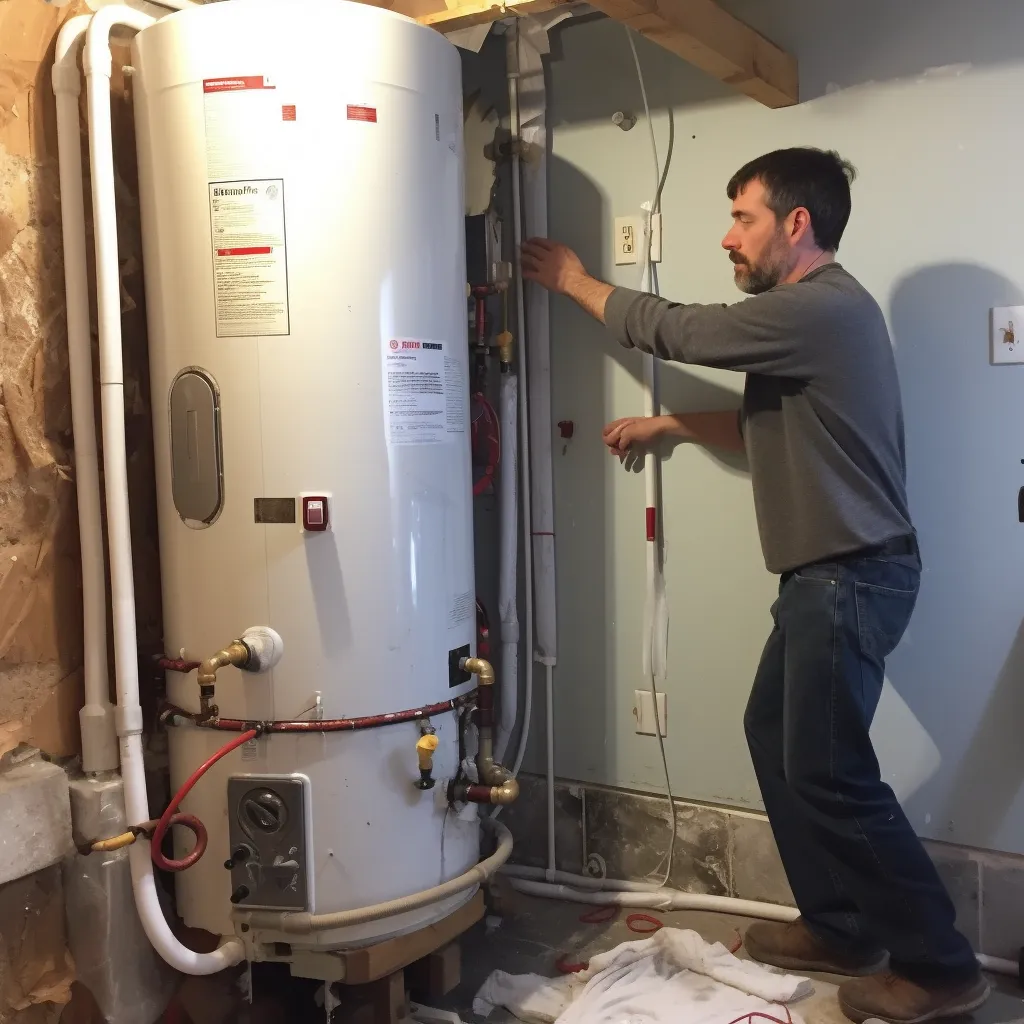
Frequently Asked Questions
Q: Will a solar water heater work in Malden's climate?
Absolutely! Modern systems are designed to work even in cold, cloudy weather. They're less efficient on gloomy days, sure, but that's what the backup system is for.
Q: How much roof space do I need?
For a typical family home, you're looking at about 40-60 square feet. But don't worry if your roof isn't perfect - we can usually find a way to make it work.
Q: What if I'm planning to move in a few years?
A solar water heater can actually increase your home's value and make it more attractive to buyers. It's a selling point, not a drawback.
Q: Do I need to replace my current water heater?
Not necessarily. Often, we can use your existing water heater as a backup system. It all depends on your specific setup.
Q: What about maintenance? Is it a hassle?
Nah, these systems are pretty low-maintenance. A yearly check-up is usually all they need.
Q: How long do solar water heaters last?
With proper maintenance, you're looking at 20 years or more. That's longer than most conventional water heaters.
Q: What if there's a problem? Who do I call?
Your installer should be your first call. Most offer warranties and service plans to keep your system running smoothly.
Q: How noisy are solar water heaters?
They're pretty quiet actually. The only moving part is usually a small pump, which makes about as much noise as a fish tank filter. You probably won't even notice it.
Q: Can I use a solar water heater with my radiant floor
heating system?
Yep! Solar water heaters can work great with radiant floor systems. It's a match made in energy-efficient heaven.
Q: What happens during a power outage?
If you've got a passive system, you're all set - it'll keep working. For active systems, you might lose hot water until the power's back on. But some systems have battery backups to keep the pump running.
Q: Do I need to clean the solar collectors?
Not often. Rain usually does the job. But if you notice they're getting dirty, a quick spray with the hose once a year should do the trick.
Q: Can I install a solar water heater myself?
I wouldn't recommend it. There's plumbing, electrical work, and roofing involved. It's best left to the pros to make sure it's done safely and correctly.
Q: Will this system work with my pool or hot tub?
It can! We'd need to size the system differently, but solar water heaters can definitely help heat pools and hot tubs.
Q: How long does the installation take?
Usually 2-3 days. We try to minimize disruption to your daily routine as much as possible.
Q: What if my roof isn't south-facing?
South-facing is ideal, but east or west can work too. We might just need to add a few more collectors to make up for the reduced sunlight.
Q: Do solar water heaters work at night?
The solar collectors don't, but that's why we have insulated storage tanks. They keep your water hot overnight until the sun comes up again.
Q: What's the difference between solar water heaters and
solar panels?
Solar panels generate electricity, while solar water heaters heat water directly. They're different systems, but they can work together great if you want to go all-in on solar. Remember, there's no such thing as a dumb question when it comes to your home. If you've got concerns, just ask. We're here to help you make the best decision for your situation.
Ready to Solve Your Plumbing Needs?
For reliable, expert plumbing services tailored to the needs of Malden and its neighboring cities, look no further than Water Heater Genies. We’re here for you 24/7, ensuring that your plumbing is always in top condition.
Call us today to schedule your service!
Business Hours: Monday - Sunday, 24 Hours
Phone Number: (781) 679-1733
Location: Malden, MA serving all surrounding areas.
Trust your local experts at Water Heater Genies for professional, timely, and efficient plumbing solutions.
GET IN FULL TOUCH
PHONE: (781) 679-1733
EMAIL:
marcus@waterheatermalden.com
Water Heater Genies
Malden, MA 01248
